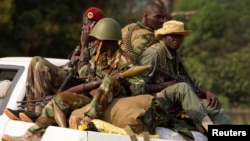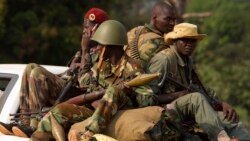Sectarian attacks and killings continued over the weekend in Bangui, capital city of the troubled Central African Republic. News reports indicate that an angry mob attacked residents of one of the city’s predominantly Muslim neighborhoods, leaving at least eight dead.
Elsewhere in the city, heavy fighting was reported between rival militia groups, including automatic gunfire and rocket-propelled grenades. The United Nations estimates that at least 2,000 people have been killed in the CAR since the crisis began in March, when a rebel group drove former President François Bozizé from office.
The United States is deeply concerned about the renewed violence, which is developing into an increasingly inter-religious conflict. An African Union peacekeeping mission, and a French intervention force supporting it, have so far struggled to contain the fighting. Clearly more needs to be done. Preventing the violence from gaining further momentum and costing more lives will require all of the nation’s leaders – past and present – to be clear and outspoken in condemning it and calling on their supporters to cease their attacks.
Thus, we are alarmed by reports that some CAR leaders may be supporting the militias and their attacks rather than working for peace and reconciliation. As a result, the United States is prepared to consider targeted sanctions against those who further destabilize the situation or pursue their own selfish ends by encouraging the violence.
The recent selection of a new transitional government offers the people of the Central African Republic an opportunity to rebuild their society and restore their tradition of tolerance. We stand with the nation’s new leaders as they work to bring all the parties together to end the violence, foster reconciliation, and move the CAR toward elections no later than February 2015.






